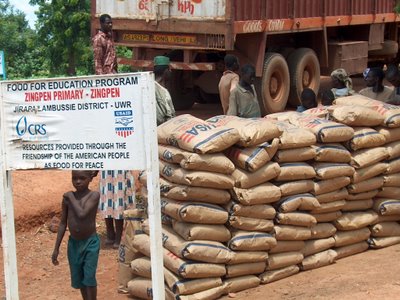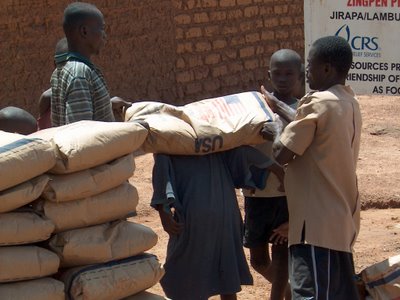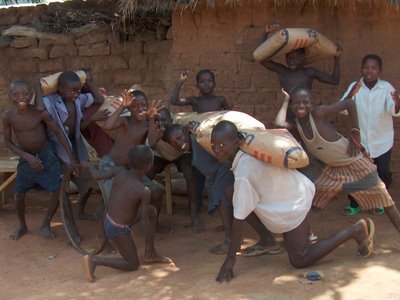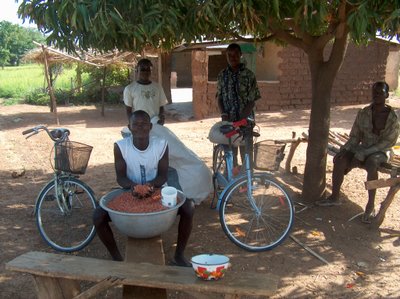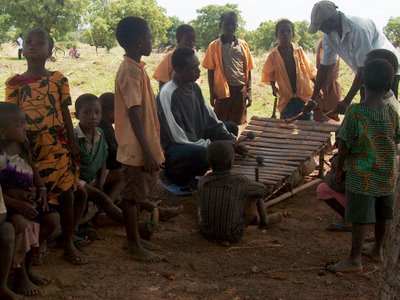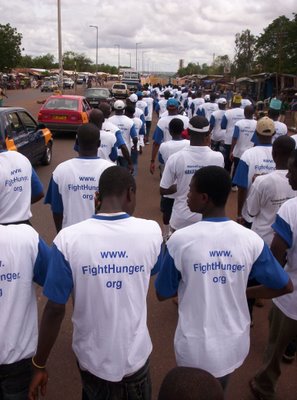Thanks to a few surprising (and fast) responses and requests, I've decided to post a letter I sent home to the chapter a few days ago. Enjoy!
There is a culture and an attitude here that often sends me into rants with fellow volunteers; I call this phenomenon that of the “
Big Man.”
The culture of the “Big Man” stands in the way of development.
It is a culture of arrogance, greed, and cronyism; in the States they call it the “Good Ol’ Boys Club.” This culture is the fertile ground for corruption and can no doubt be traced back to the Colonial days and the slave trade.
From village leaders to classroom teachers, those in power believe that they are absolute authority and that questioning them is near treasonous.
Likely strengthened or driven by a huge unemployment rate, they punish their underlings with no regard for justice or reason; punishment is simply a reminder of the balance of powers to all those involved.
Obviously, this attitude, which dominates almost all facets of Ghanaian life, retards the development of
Ghana’s marginalized and vulnerable people.
In order to run activities with the “lowest” on the chain you need to first run plans through the appropriate hierarchical structure.
The plan you began with, however good it may be, is never the plan you finish with since you have to appease so many levels in between.
Furthermore, this bureaucratic nightmare limits communication with those who need the most help, dooming most projects to failure since the people’s needs are not fully known or understood.
As history has shown, those in power are not great at identifying ways to help those which they have oppressed.
In
Ghana’s development sector many NGOs are actively working to encourage gender equality and equal opportunity across all facets of life.
In achieving this, one of the main goals is to help develop and promote women leaders.
While being an admirable goal, this is wholly ineffective—replace the Big Men with Big Women and not much will change.
The importance lies in challenging the Big Man culture itself; in creating a system that can promote leaders who lead by compassion, encouragement, and care.
Only through these leaders can gender equity and equal opportunity become a reality.
Across the country there is an unbelievably strong attitude that educating ones children is the most important thing a parent can do.
While I find this attitude remarkable and extremely admirable, it may be prove to be destructive if there is not a close examination of the quality and atmosphere of that education.
Ghanaians need to challenge the disciplinarian aspects of schooling, from blind obedience to caning.
In the current system creativity is routinely stifled since it usually doesn’t fit within the rigid curriculum of the schools.
But the fact is that no good comes from forcing the students to accept discipline unflinchingly.
Children need to be offered a better way of relating to authority.
Open learning exchanges inspire critical thought; compassionate interactions will create conscientious and humble leaders.
Thankfully, the NGO that Engineers Without Borders Canada placed me with realizes this.
The Rural Aid Action Programme (RAAP), founded and staffed by local Ghanaians, has a culture that directly clashes with that of the “
Big Man.”
Regardless of positions within the organization, everyone refers to each other by their first names—a huge deal in a country where all people referred to in the third person are “Madame” or “Sir.”
All RAAP workshops and meetings conclude with critical feedback for the facilitator and everything they do is viewed as a “learning opportunity.”
In our last staff meeting our director told us all that “if you are too big to be criticized you are equally too small to be praised,” which I found particularly poignant.
Slowly but surely RAAP is challenging and changing the attitudes of villagers and educators, creating an environment in which real, meaningful progress can be made.
Admittedly, shifting
Ghana’s culture from that of the “Big Man” to that which RAAP endorses will be a very lengthy process that requires a lot of investment, care, and critical thought.
However, it is an essential shift needed for
Ghana’s continued development; while the speed of the process may not make it feel as rewarding as building a treadle pump for a village, the investment will produce much greater results.
The process will be slow in the beginning, but as each person influences those around them, showing them the importance of open, compassionate interactions, the number of people involved will grow exponentially.
In time, the shift will begin to take hold across the country, with local champions existing in all facets of life.
When this happens
Ghana will have won; no Big Man can withstand the strength of an entire nation.
 Each term the Catholic Relief Services and USAID supply the village’s primary school with two metric tons of imported US Sorghum to help feed the students at lunches.
Each term the Catholic Relief Services and USAID supply the village’s primary school with two metric tons of imported US Sorghum to help feed the students at lunches. This food takes a lot of pressures off of the families; since the kids are in school they can’t help their families farm, and so a reliable source of food is essential.
This food takes a lot of pressures off of the families; since the kids are in school they can’t help their families farm, and so a reliable source of food is essential.
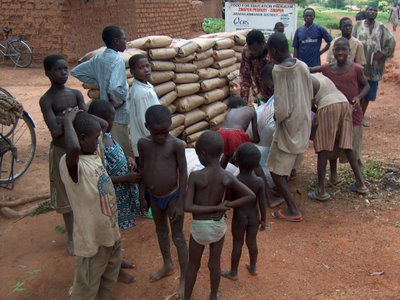
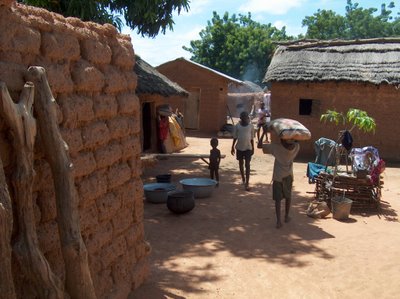 Throughout the week my probing about the farmer’s difficulties almost always resulted in the same answer: lack of market access.
Throughout the week my probing about the farmer’s difficulties almost always resulted in the same answer: lack of market access.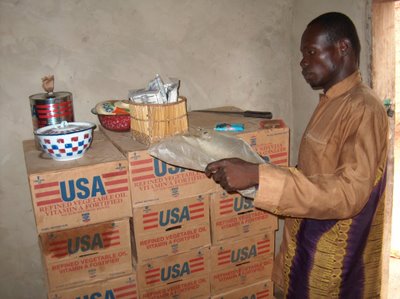 How much money does it cost to ship two metric tons of food from North America to the middle of nowhere in the upper corner of Ghana?
How much money does it cost to ship two metric tons of food from North America to the middle of nowhere in the upper corner of Ghana?